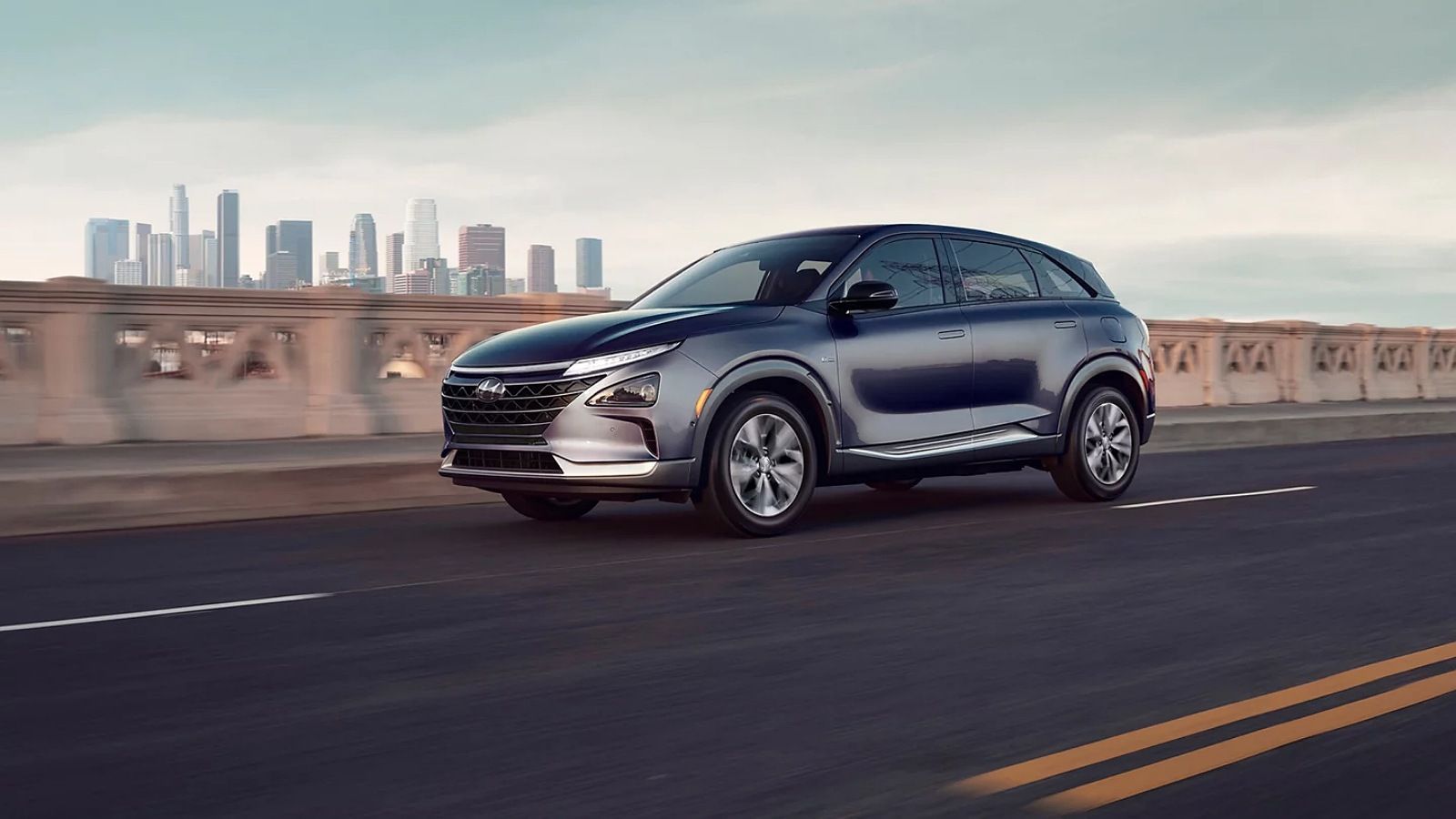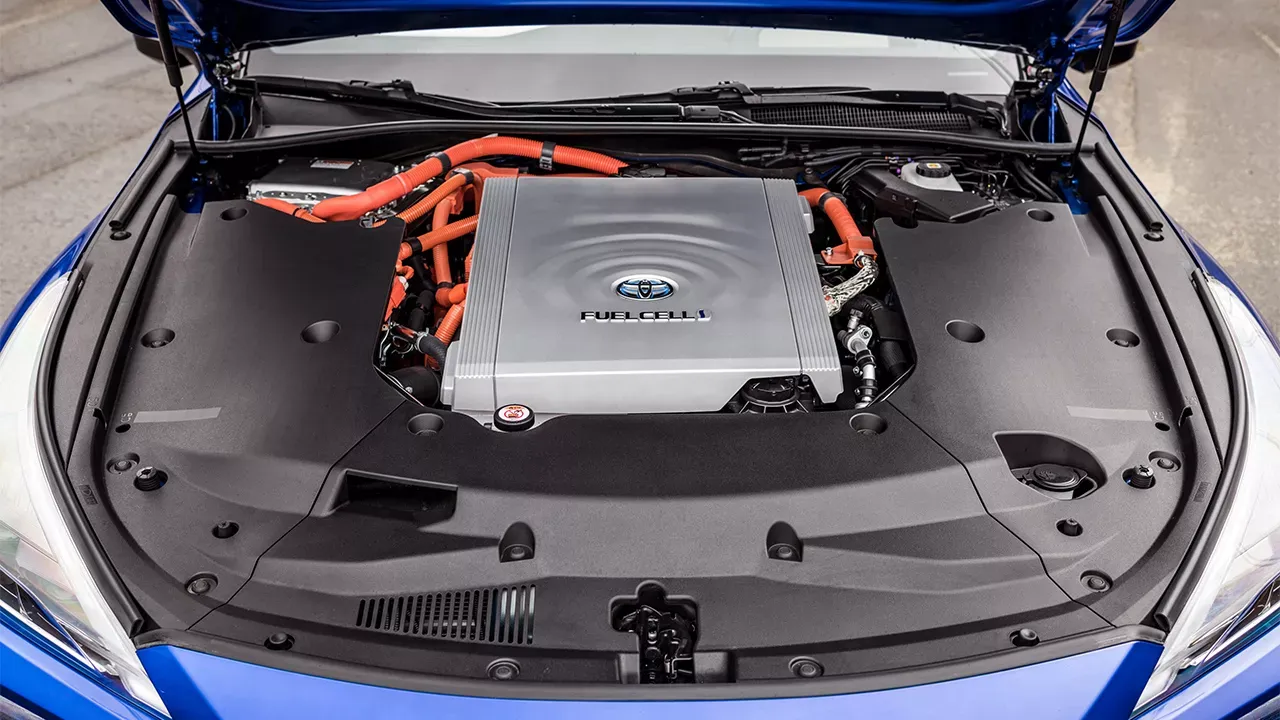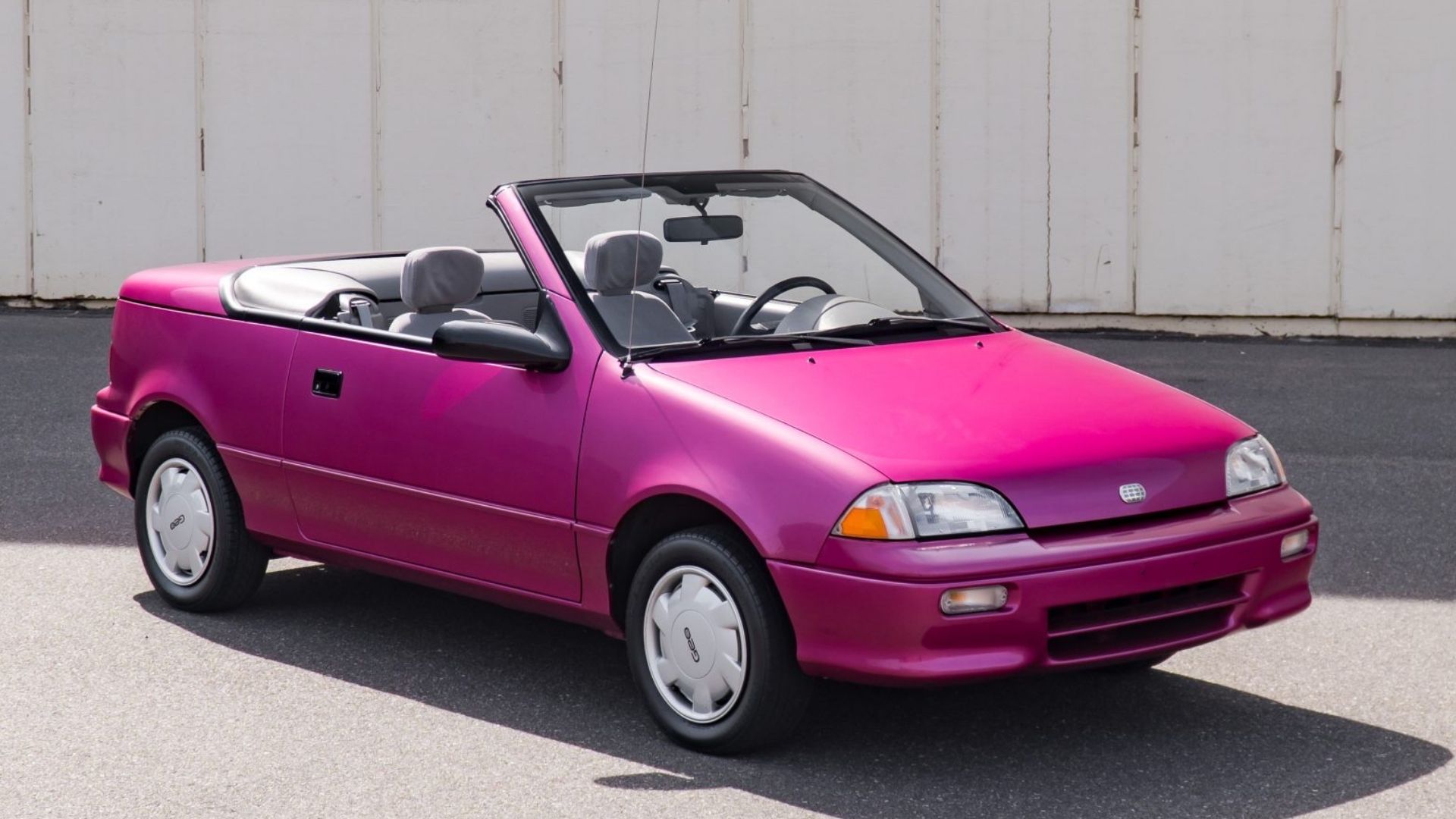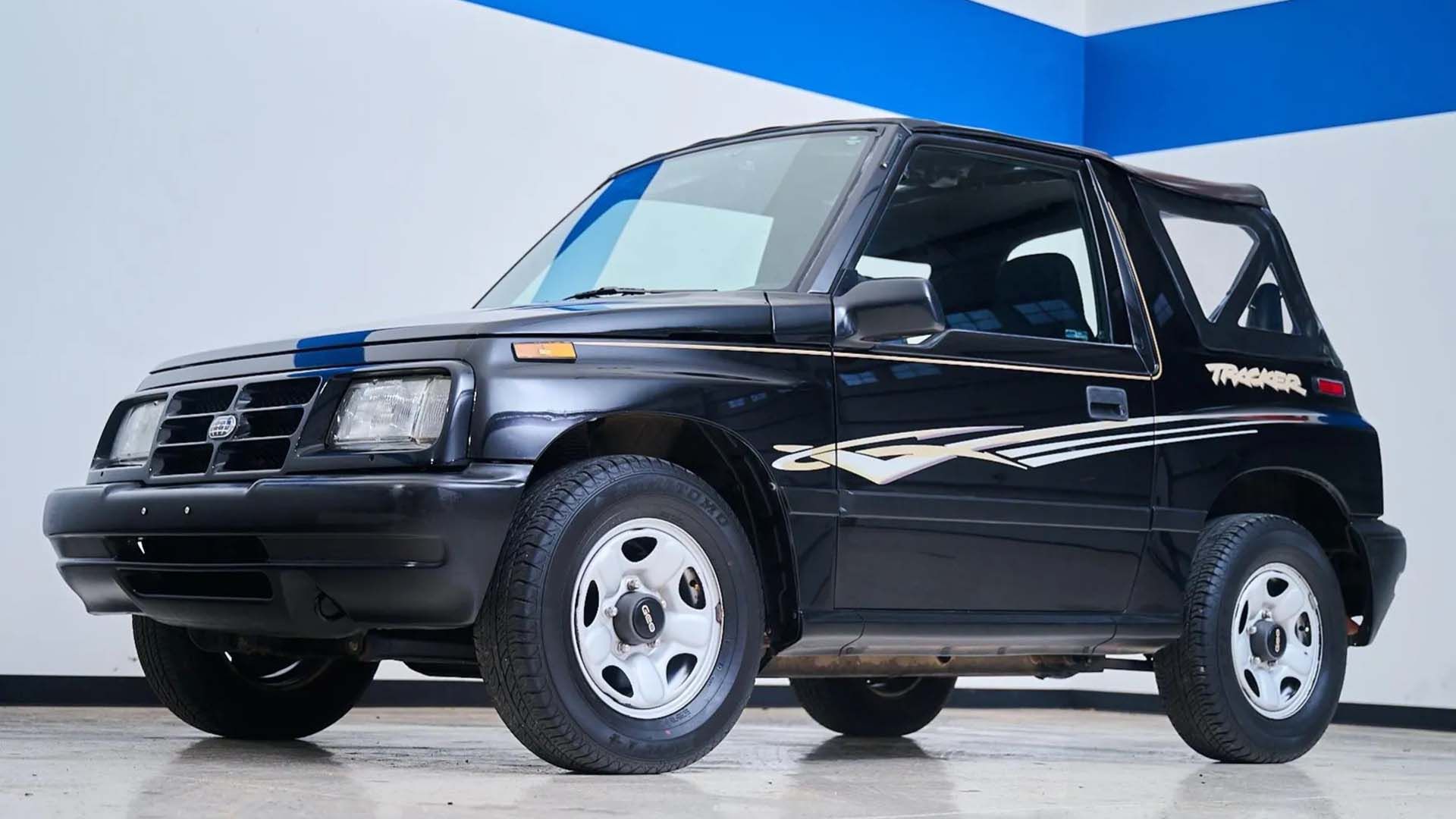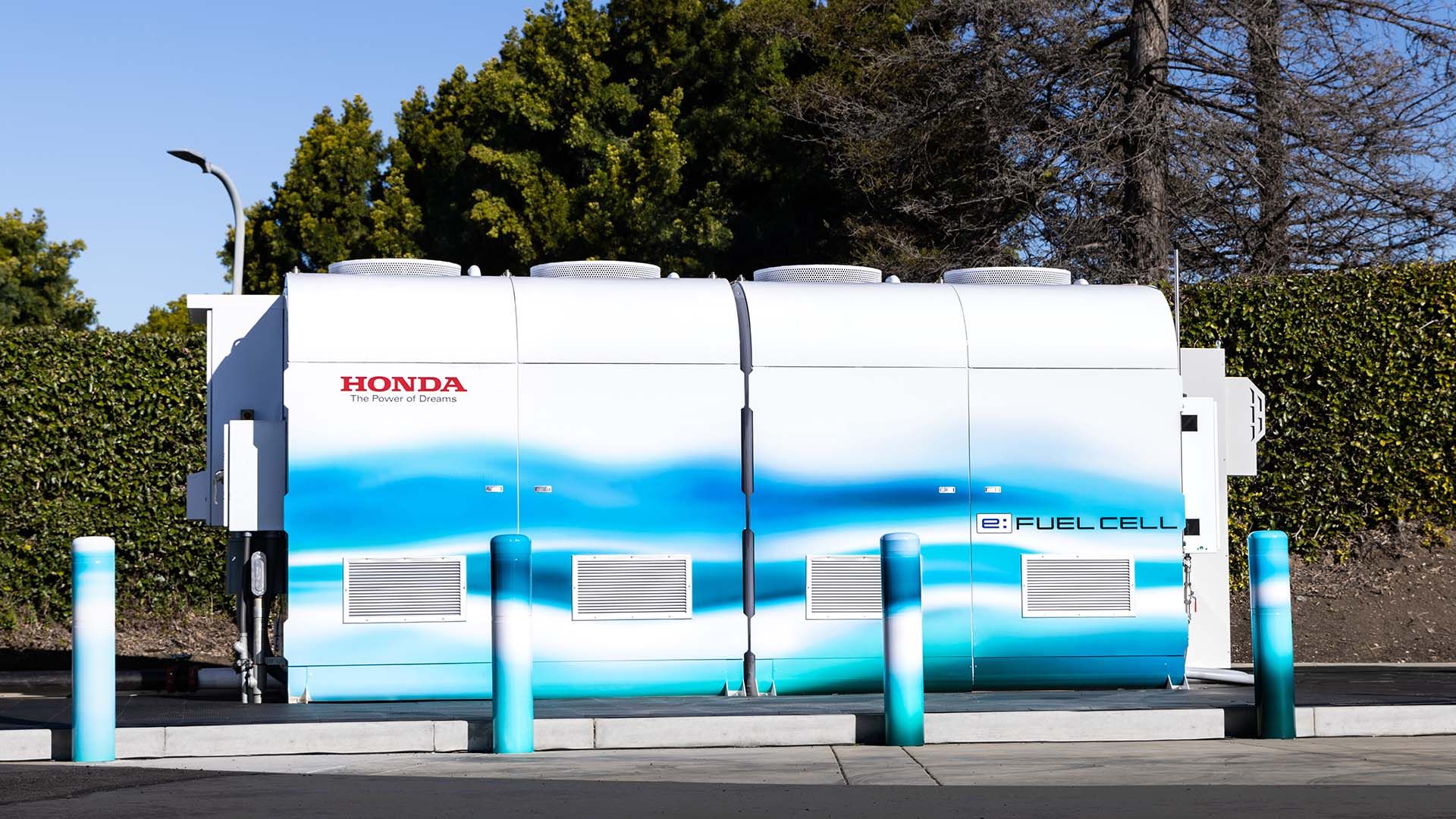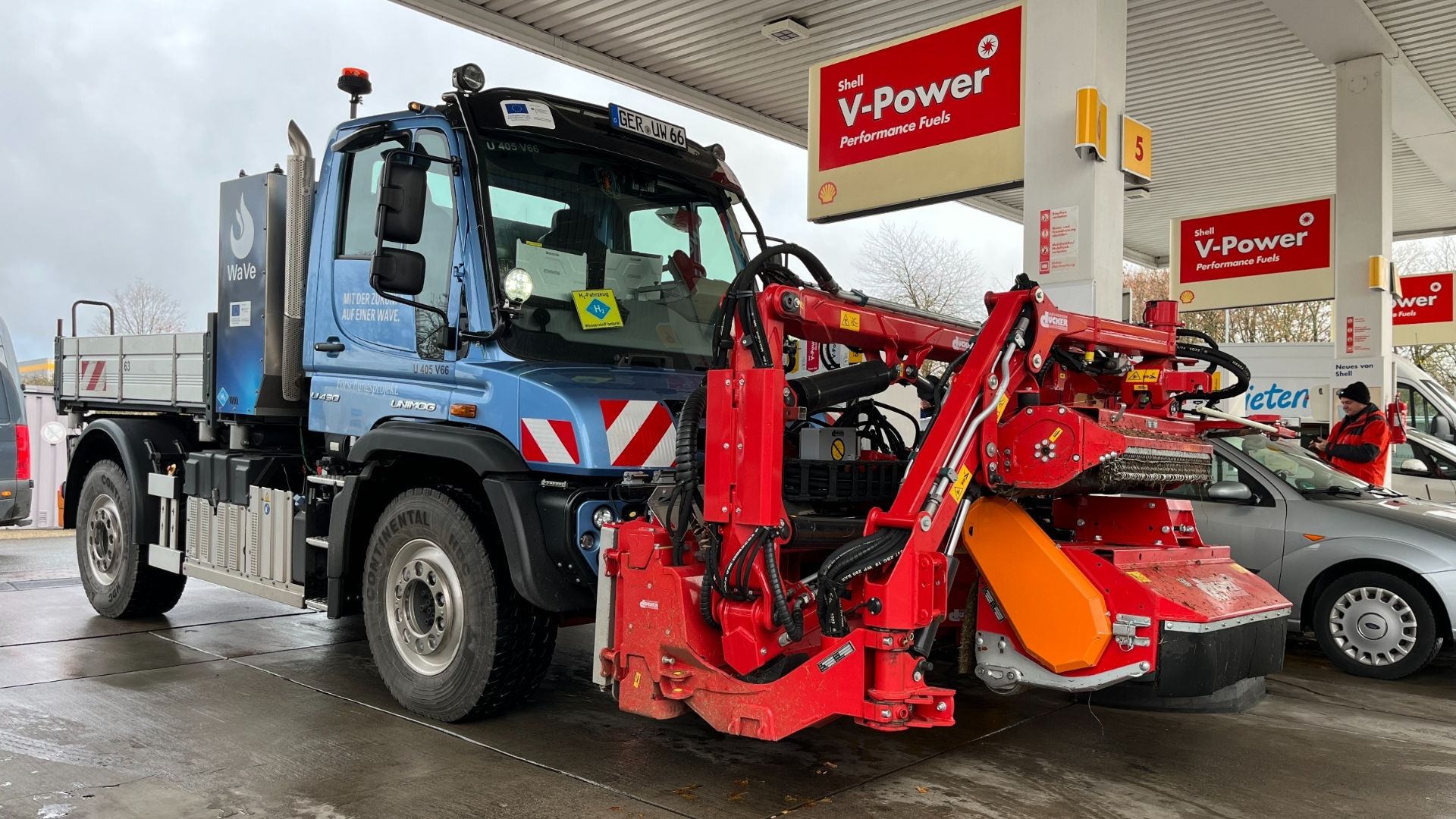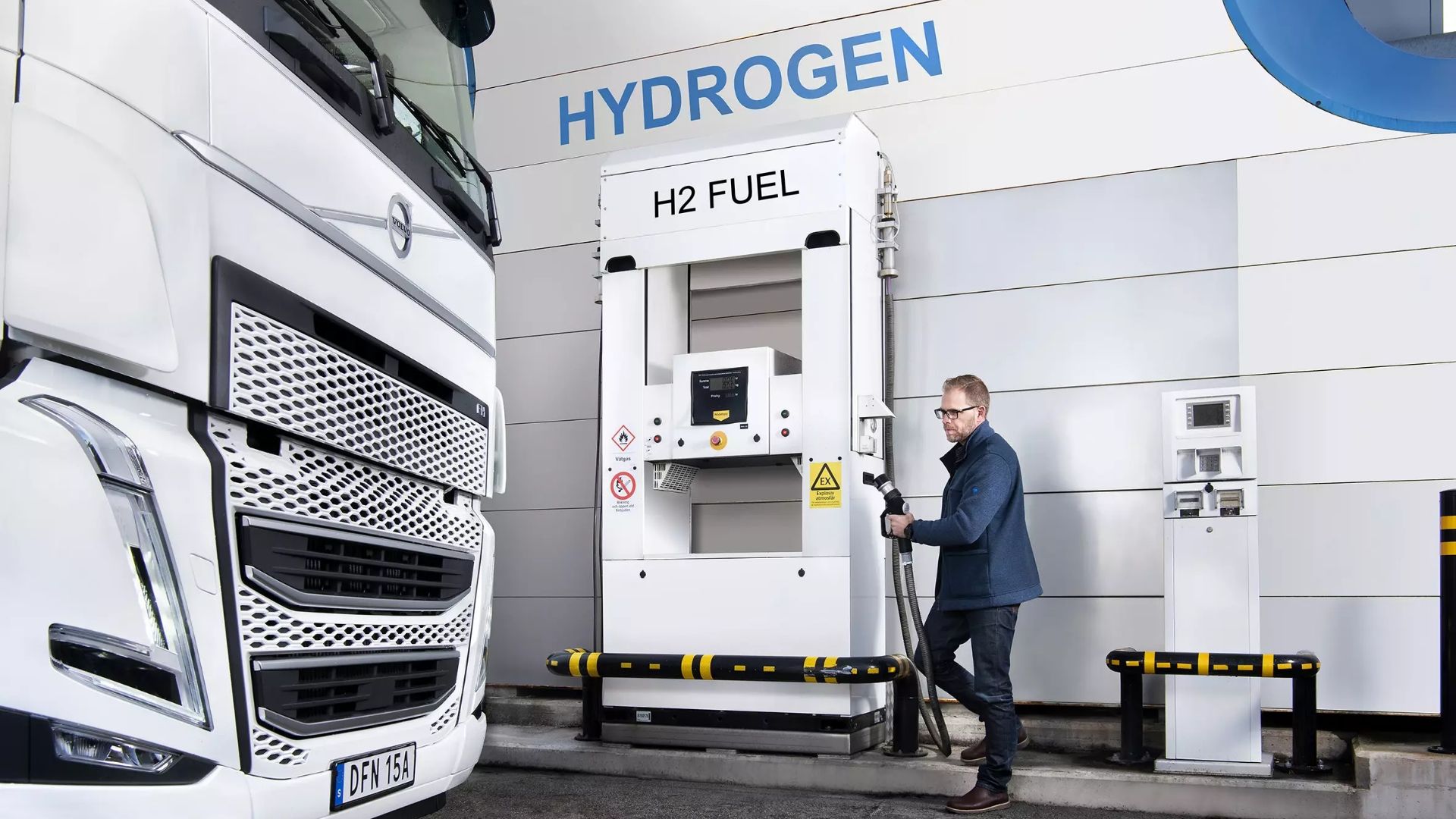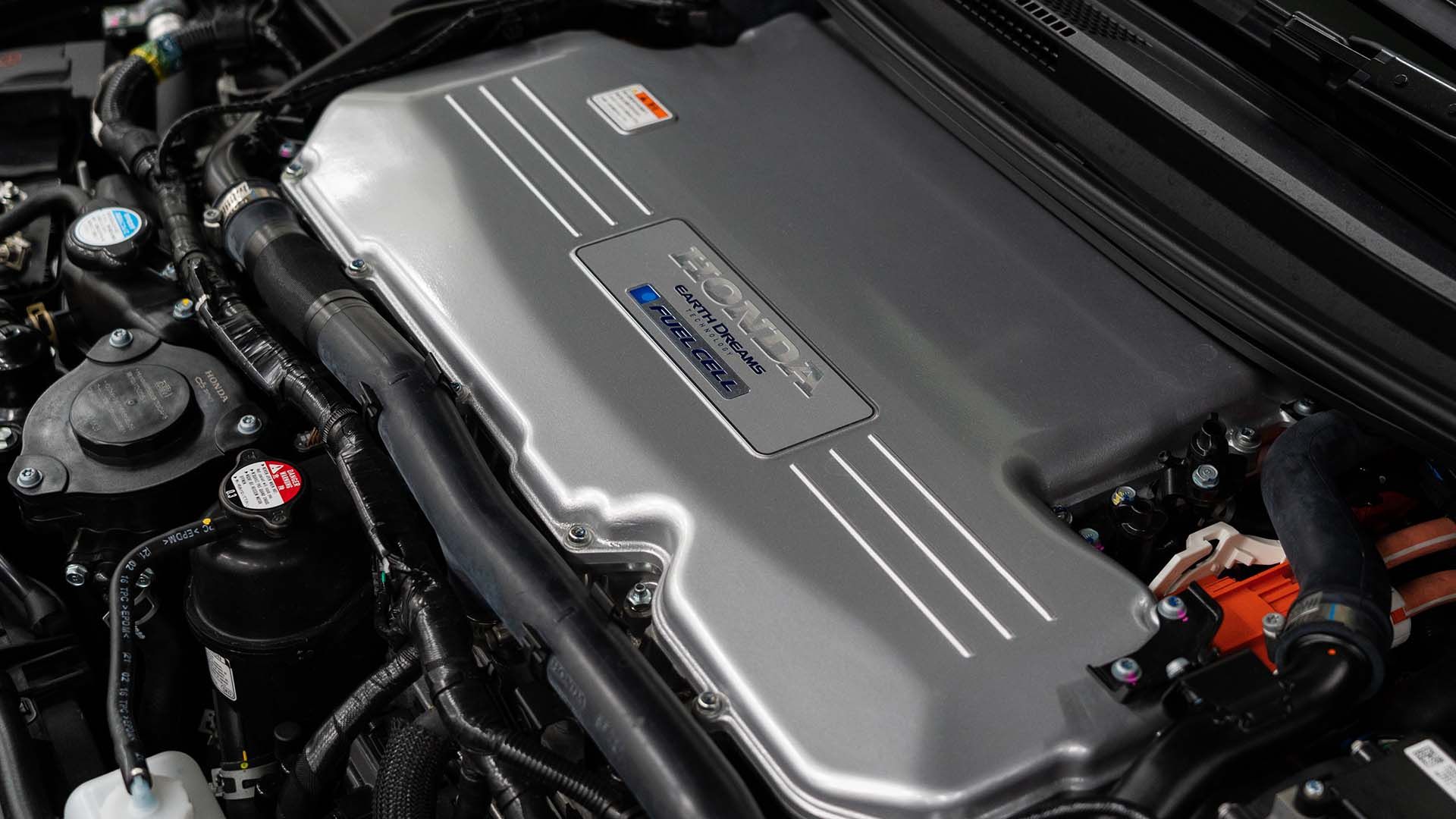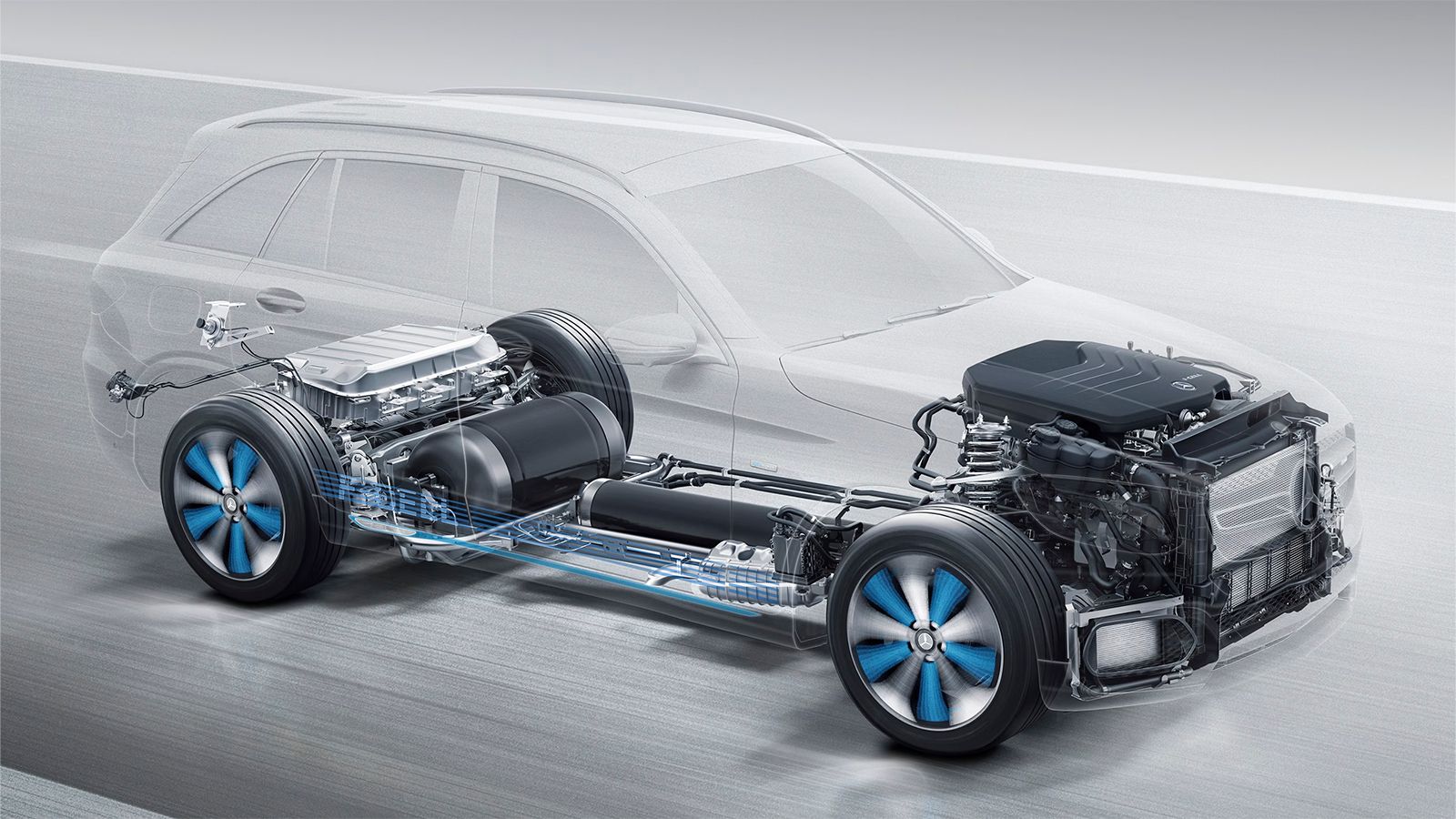[ad_1]
Hydrogen is the fuel that won’t go away. Despite pesky problems like a lack of distribution infrastructure, customer wariness, range limitations, and the need for large fuel tanks that have a way of eating into the car’s interior space, the auto industry keeps throwing money into the gas. While a few companies have attempted to use hydrogen to bring the internal combustion engine into the post-gasoline era, the real future for the smallest atom on the periodic table seems to lie in fuel cells that don’t burn anything.
Honda and General Motors have formed a partnership called Fuel Cell System Manufacturing LLC, which does exactly what the name states. The two automakers seem to believe that hydrogen will be profitable enough in the future to justify an $85 million factory just outside of Detroit. This manufacturing plant is already open and producing hydrogen fuel cell systems. The slow end of the gasoline era is taking the auto industry into places that seemed absurd only twenty years ago, including the mass production of making power systems that use a fuel that is still only available in a handful of cities around the world.

GM And Honda Begin Production Of Hydrogen Fuel Cells In Their New U.S. Facility
General Motors and Honda rev up hydrogen fuel cell production in the U.S., aiming for affordability and broader adoption.
In order to give you the most up-to-date and accurate information possible, the data used to compile this article was sourced from various manufacturer websites and other authoritative sources, including Edmunds, Top Gear, and Car and Driver.
Some Automakers May Switch To Stand-Alone Power Generation Systems
- As hydrogen (very gradually) expands its market share, automakers may start selling fuel cells as portable power systems.
- Automakers may begin purchasing hydrogen fuel cell systems instead of developing them in-house.
Intriguingly, the Honda-GM collaboration doesn’t seem to be focused on cars. While the two automotive titans have co-developed a single hydrogen vehicle (a variant of the Honda-CR-V), most of the investment has been on making the fuel cells themselves. Neither company has announced a forthcoming lineup of hydrogen cars.
Cars May Stop Being Defined By Their Power Source
As batteries and hydrogen slowly begin to supersede internal combustion, a car’s powerplant may become less and less of a defining feature. While every different engine has its own defining characteristics, sounds, personality, and torque curve, one fuel cell system feels much the same as another.
In other words, the source of a car’s power may become as much of a defining feature as the type of hoses used to connect the water pump to the radiator. Indeed, the motor in an electric car does not care whether its power comes from fuel cells or a battery. Once the electricity enters the car’s wiring, it’s indistinguishable.
On a brief semantic note, the term “power plant” for cars may soon become bifurcated as EVs proliferate. With an EV (whether it’s powered by fuel cells or batteries), the car’s energy and motion come from two separate sources instead of a single engine.
EV Manufacturers May Buy Off-The-Shelf Hydrogen Systems Instead Of Making Them In-House
It is not far-fetched to postulate that if hydrogen takes off, other automakers may not bother to develop their own fuel cells. After all, no company in the industry makes its own batteries. While different EV manufacturers may produce their own motors with various horsepower levels, torque ratings, and “personalities,” there is no particular difference in “road feel” between different fuel cell systems. As a result, others in the auto industry may purchase from Fuel Cell System Manufacturing LLC instead of developing their own hydrogen setups.
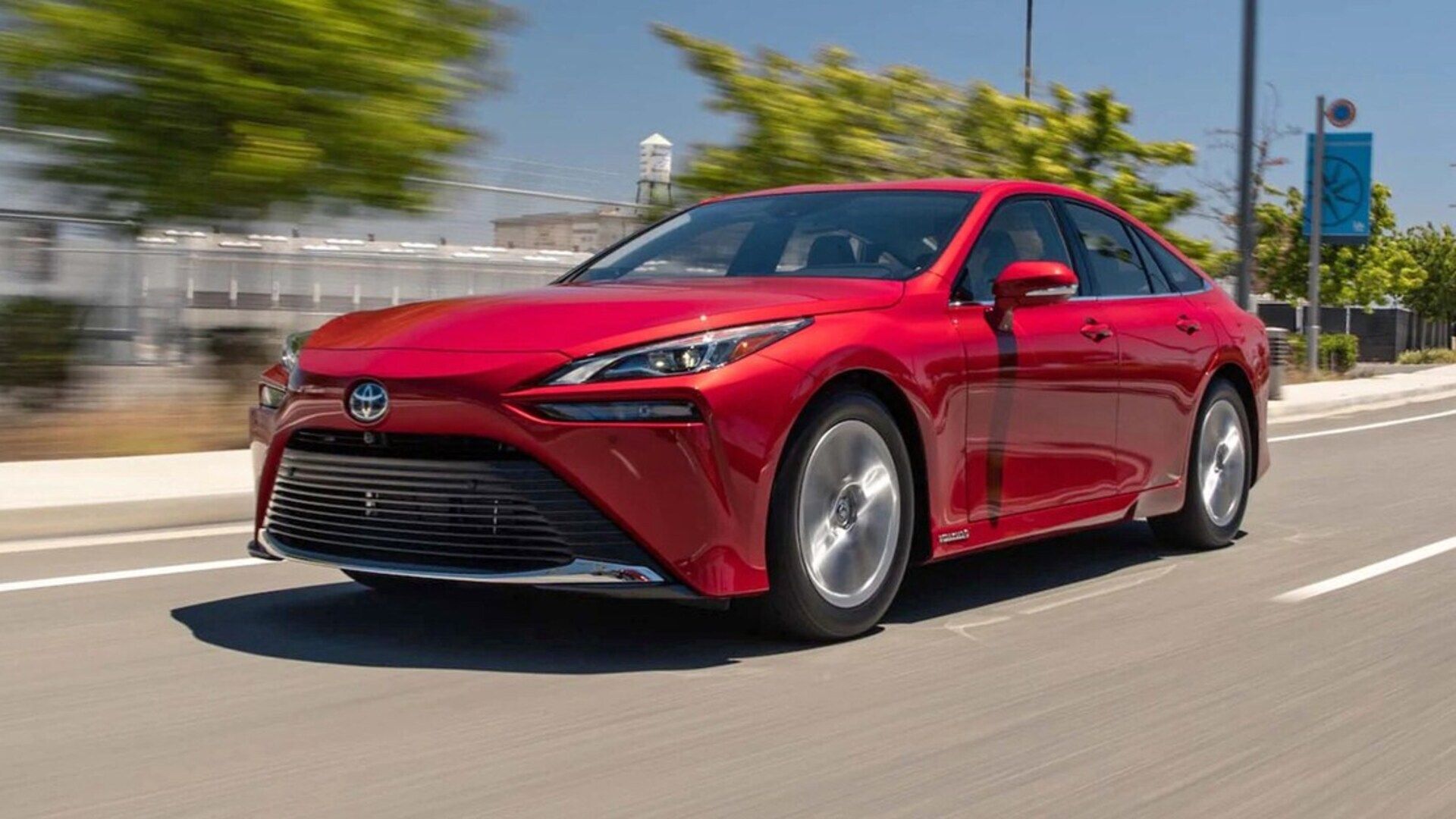
Why The Rise Of Hydrogen Vehicles Is Inevitable
Hydrogen can power future electric vehicles and, with a relatively simple conversion can reduce emissions of our current internal combustion vehicles
Fuel Cell System Manufacturing, LLC, Is Not The First U.S.-Japan Automotive Partnership
Of course, Fuel Cell System Manufacturing LLC isn’t the first time auto companies have formed trans-Pacific collaborations. While automakers are normally in competition with each other, the industry has a long history of partnerships between apparent rivals.
Geo Was How GM “Borrowed” Cars From Japan
One of the most high-profile partnerships between Japanese and American automakers was Geo, a General Motors brand that existed solely to sell rebadged vehicles from Toyota, Isuzu, and Suzuki. Importing vehicles from overseas allowed GM to sell reliable small cars without taking the trouble actually to develop them. (General Motors has never quite managed to develop small economy cars that don’t have a habit of dying prematurely.) And, of course, the Japanese companies involved were able to use GM’s “all-American” reputation to reach a previously inaccessible customer base.
Other U.S.-Japan Car Partnerships
Of course, General Motors isn’t the only company to reach across the Pacific Coast. Chrysler and Mitsubishi formed a short-lived alliance called Diamond-Star Motors which yielded the sort of cars that dreaming 12-year-olds buy posters of. To round out the American Big Three, Ford and Nissan co-developed a minivan that (depending on which badge was on its snub-nosed prow) was either the Mercury Villager or the Nissan Quest. The two vans even shared an assembly line.
While it’s hard to get most auto experts excited about a minivan, they were the most popular vehicle type in the ever-lucrative family-hauler market segment at the time. Not every industry collaboration can yield a manual-transmission coupe.
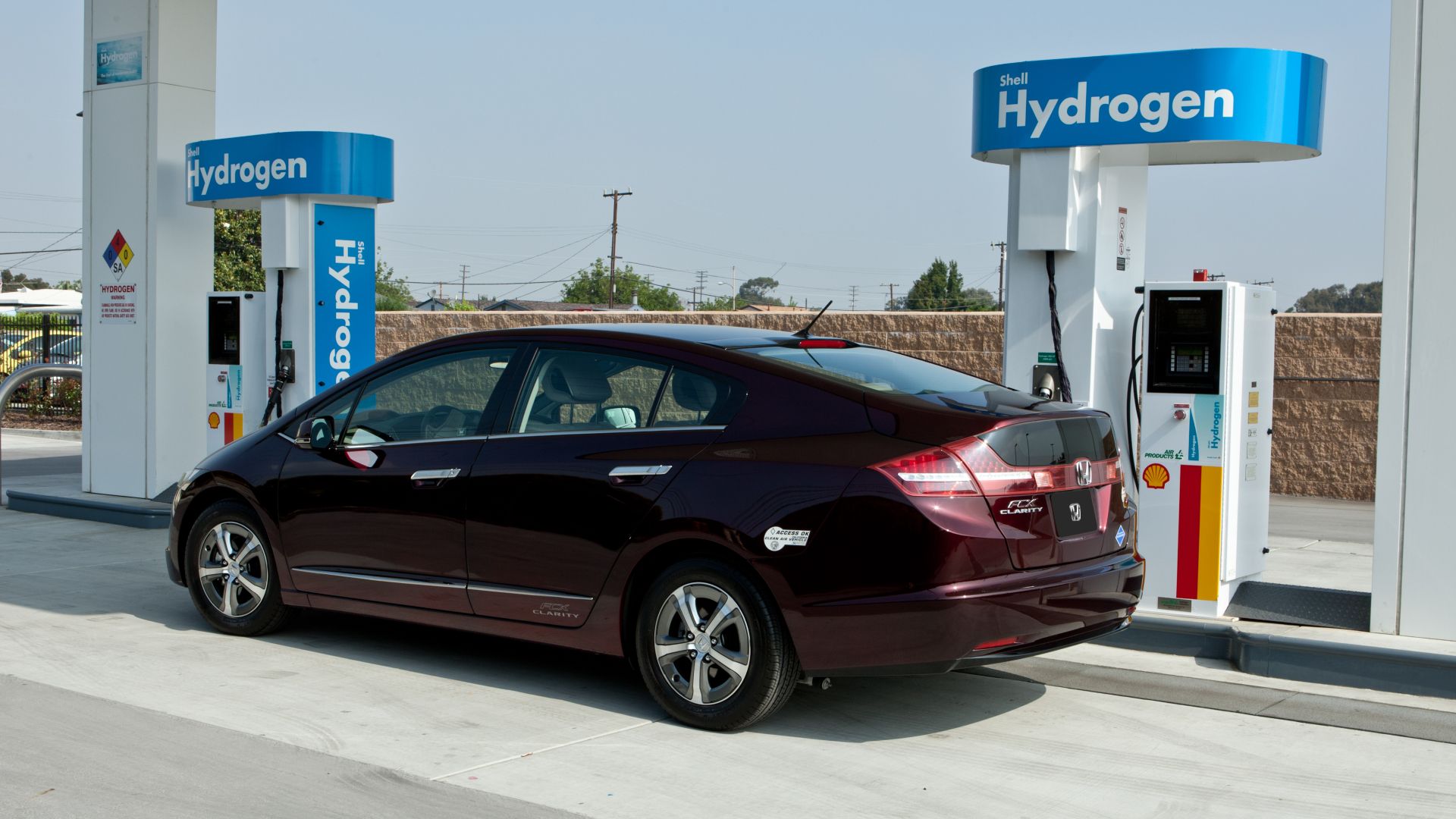
How Honda’s Hydrogen Business Strategy Revolves Around Its Next-gen Fuel Cell System
While most automakers are focused on BEVs, Honda is placing its bets on hydrogen; not just for cars, but pretty much everything.
Hydrogen Cars May Have Limited Use, But Hydrogen Isn’t Going Away
- Hydrogen may not be well-suited to passenger cars, but it may prove a good choice for other uses.
- Unlike batteries, hydrogen does not lose its stored energy when stored for a long time.
- Hydrogen may also be useful for construction machinery, small engines like lawn equipment, and emergency or portable power generators.
Of course, even as GM and Honda joint-fund a factory in Detroit and start cranking out fuel cells, many people remain skeptical that hydrogen will ever become ubiquitous. While hydrogen cars may remain a niche choice, hydrogen fuel cells show a lot of promise for other uses. For one thing, they need no electricity to recharge.
Additionally, a hydrogen tank can essentially store energy indefinitely (provided it is properly sealed). As anyone who has tried to start a car after a long period of disuse can attest, batteries slowly lose their charge when they sit idle. The electricity stored inside them simply dissipates and is wasted. However, a hydrogen tank suffers no such energy losses regardless of how long it is stored.
Future Construction May Be Powered By Hydrogen Fuel Cells
While hydrogen fuel cells might not power the traffic jams of the future, they may prove a natural fit for most non-automotive engine uses. Everything from suburban lawnmowers to construction equipment could be powered by hydrogen fuel cells in the not-too-far future. Although sustainability proponents tend to focus on the extravagance of using gasoline for commutes and petty errands, an astonishing amount of crude oil ends up getting burned in the name of keeping lawns perfect.
While lithium-ion batteries have made a few inroads into the gasoline-dominated market for lawnmowers and weed whackers, the planet’s supply of lithium is notoriously finite. Industry insiders have already begun to worry about what sort of battery chemistry can power the laptops and EVs of the future when the world’s remaining lithium is too costly to use.
Hydrogen May Replace Diesel In Emergency Power Generators
Because hydrogen fuel cells require no power grid for plugging in and recharging, they are a natural choice for power generators. At present, places that cannot endure even the briefest of power outages (such as hospitals and data centers) usually have diesel generators ready to power the building whenever the local electricity fails. Hydrogen fuel cells may take over that duty in the future.
Like diesel, hydrogen gas remains stable even if stored for a long time. Hydrogen fuel cells also offer the advantage of not requiring the rigorous maintenance schedule of a diesel engine. This is not to glibly chirp that fuel cells are maintenance-free. However, they need far less love and servicing than combustion engines of any kind.
Honda has already taken the dramatic step of switching to hydrogen fuel cells as the emergency backup for its data center in Torrance, California. While it’s always impressive to show that one’s technology performed well in a testing lab, the best endorsement is when a company actually deploys it instead of spraying out press releases about excellent lab results.
Honda’s choice to put its fuel cell systems to use in something so crucial is as dramatic a statement as when the CEO of Chinese EV manufacturer Nio personally drove one of his company’s cars 648 miles on a single charge just to prove that the battery can take it.
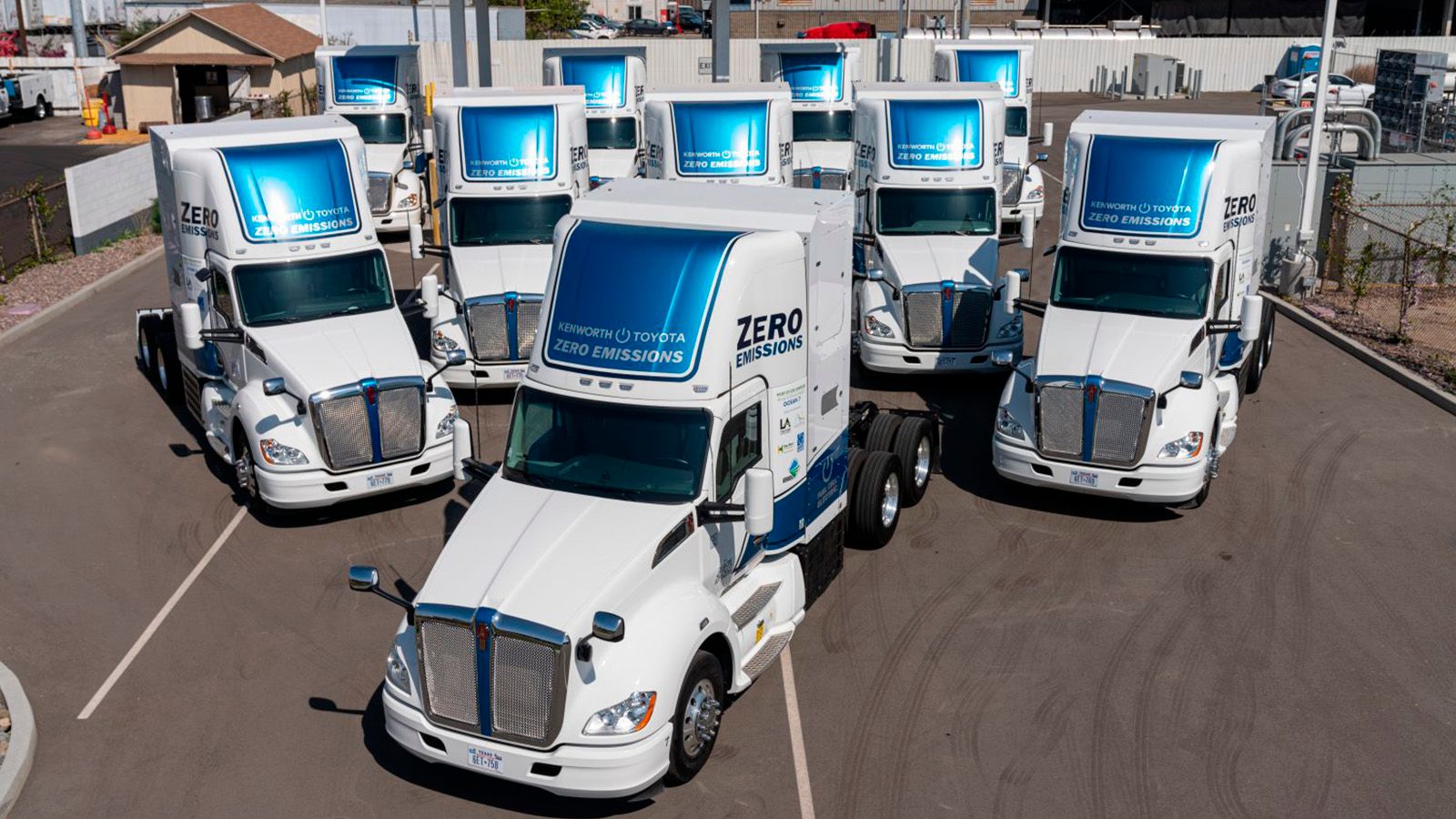
Here’s Why Hydrogen Tech Is Better Suited For Commercial Vehicles
Hydrogen is having a difficult time finding its niche in passenger cars, but it’s gaining support in a heavy-duty segment.
The Future Of Hydrogen Is Gradually Taking Shape
As the auto industry gradually warms up to hydrogen, it’s easy to carp and cry out that no fuel can possibly be as good as gasoline. And, it’s true that (finite resources aside) nothing may ever equal gasoline in terms of versatility. However, this does not mean that the era of gasoline can go on forever. Instead, different fuels will replace gasoline for different uses.
Crate Fuel Cells May Replace Crate Engines
While most automakers offer engines that have nothing to do with cars or motorcycles, Honda in particular seems to specialize in selling engines for uses wholly unconnected with transportation. This makes it easier for Honda to sell fuel cells as a worthy successor to its own products.
Other automakers may follow Honda and GM’s lead and start selling fuel cells the same way they sell crate engines today. Or, others in the automotive industry may simply purchase fuel cells from Fuel Cell System Manufacturing LLC the same way they purchase other off-the-shelf car parts.
Hydrogen Fuel Cells Have Flaws, But They Will Never Go Away
While hydrogen promises to have many uses as the automotive industry gradually transitions to what is currently called “alternative fuels,” it has substantial drawbacks besides the currently limited distribution network. Most notably, a lot of energy is required to produce hydrogen gas. However, as the saying goes, perfect is the enemy of good. No magical “wonder fuel” has emerged to power the future. If hydrogen didn’t promise to be useful, no one in any automotive boardroom would have ever signed off on multimillion-dollar investments.
The world of car fuels is changing. As much as V-8 lovers may hate it, hydrogen is here to stay.
[ad_2]
Source link
